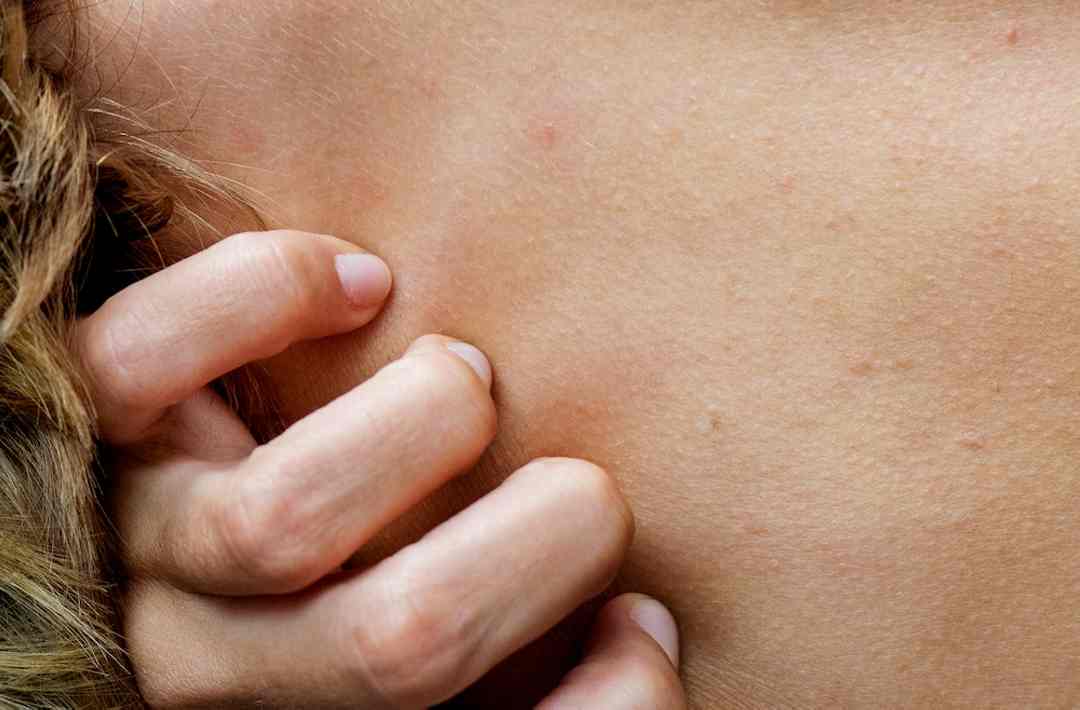My psoriasis and mental health issues have always been closely connected. In fact, I’m not sure which came first.
By the time I was diagnosed with depression at age 19, I already had inflamed, scaly, red patches of skin on my arms and legs. I’d noticed what I thought was dry skin on my elbows that just wouldn’t quit. It started small—nothing a little moisturizer wouldn’t soothe. I had no idea it would it was the very early signs of a chronic autoimmune condition that would have a huge impact on every aspect of my life for the next 25 years.
I also didn’t really understand my mental health at that point. It wasn’t spoken about at home or in school; I thought I was just a weird teenager, occasionally wondering what was wrong with me, but not wanting to dig too deep in case there really was something wrong with me.
Since then, I’ve spent my life coming to terms with my depression and my autoimmune disorder. But it’s only been over the last few years that I’ve realized how much my mood affects my skin.
In my defense, not a single doctor—over a quarter century of being treated for psoriasis—has ever asked about how much stress I’m under or whether I’ve noticed a link between stress and flares, nor has any doctor recommended that I make mental health care a priority in my psoriasis treatment plan.
Stress is a known trigger for psoriasis, which can create a vicious cycle. My skin flares up. I get anxious because I feel like it’s out of my control. I want to go outside and give my skin a little vitamin D, yet I also want to hide every inch of it from prying eyes. I want to take my baby daughter swimming, but I dread the stinging and redness I’ll experience when I’m out of the chlorinated water. So, sometimes, I avoid doing the things I love. I feel down about it. Maybe not a full-on, can’t-get-out-of-bed-in-the-morning depression, but a palpable low mood. My skin gets worse. And so on. You get the picture.
It’s very common for people with psoriasis to have associated anxiety and depression—and there are different reasons for this overlap, Evan Rieder, M.D., board-certified dermatologist and psychiatrist at NYU Langone Health, tells SELF.
For starters, the biological inflammatory processes that exacerbate skin conditions may also make mental health conditions worse. In other cases, people may develop feelings of anxiety and depression—sometimes even social isolation or withdrawal—because of their symptoms or even negative reactions from other people. (I’ve been there: the look of barely disguised disgust at my bare, flaring arms in the supermarket.)
“Psoriasis is often mistaken for an infectious disease by the general public,” Dr. Rieder says. “However, it’s not infectious and can’t be transmitted between people.”
Unfortunately, experts still don’t know much about the emotional component of psoriasis. According to Dr. Rieder, the relationship may be bidirectional. Simply having psoriasis—which in severe cases involves a large part of the body and/or the face being covered in red, scaly, often itchy, and painful lesions—can lead to anxiety and/or depression, which can lead to low self-esteem, which can impact work and social life. Conversely, being under psychological stress alters the way certain hormones (including cortisol and epinephrine) and inflammatory molecules (like cytokines) work in the body, which may then trigger psoriasis flares in some people.
Some days my psoriasis doesn’t bother me; it barely registers in my mind. Other days it’s all I can think about. If I’m letting it take up too much mental space, I know I need to look at my lifestyle and make sure I’m doing everything I can to reduce stress and restore calm. Taking care of your psoriasis—like taking care of your mental health—may look slightly different for everyone.
That said, here are the ways that I cope with the mental and emotional side of my psoriasis:
I rest as much as I can. And with a blended family of six kids (including a nine-month-old who breastfeeds on demand) and a 40-hour work week, this isn’t much. But still, I grab those early nights and long lies whenever possible. I try not to put extra pressure on myself to do all the things beyond work and family. Yes, exercise makes me feel better in every way, but beating myself up about not making it to the gym three mornings a week isn’t going to help my state of mind or my skin.
I find ways to move every day. Some days it’s just a walk to the park with my daughter in her stroller. If I’m lucky, she’ll go to bed early and I can box or lift some weights. If I’m really lucky, I’ll get a sitter and sweat it out at the gym for an hour. Again, I do what I can.
I research all my options. Over the years I’ve tried everything from creams and light therapy to Chinese herbs and acupuncture, as well as every “miracle cream” recommended on the internet. What works and doesn’t work is different for everyone, so if you’re not satisfied with your treatment, speak to your doctor. If you don’t think your doctor cares, go to another one. Ask lots of questions; figure out what road you want to take.
I also keep my skin hydrated, which is the simplest but possibly most effective thing I do. I moisturize my skin with coconut oil at least twice a day and drink three liters of water every day, without fail.
I take my mental health seriously. Talking to a mental health professional isn’t going to make my psoriasis clear up overnight, but it helps me feel less anxious or stressed, which can only be a good thing for my skin. Dermatologists don’t routinely screen for depression in people with psoriasis, Dr. Rieder says, but he recommends letting your derm know how you’re feeling if you’re not being asked. “Most of us are well-networked with psychologists, psychiatrists and social workers who can be very helpful in providing talk therapy and, if necessary, medication that can help,” he says.
I do what I can to de-stress. Yoga, mediation, and just getting out in nature and fresh air are other things that comfort and relax me. Dr. Rieder often recommends people do anxiety-reducing exercises at home, like deep abdominal breathing, progressive muscle relaxation, and guided imagery. Apps like Headspace and InsightTimer are good places to start, and YouTube has slew of audio sessions to help you get in the zone.


